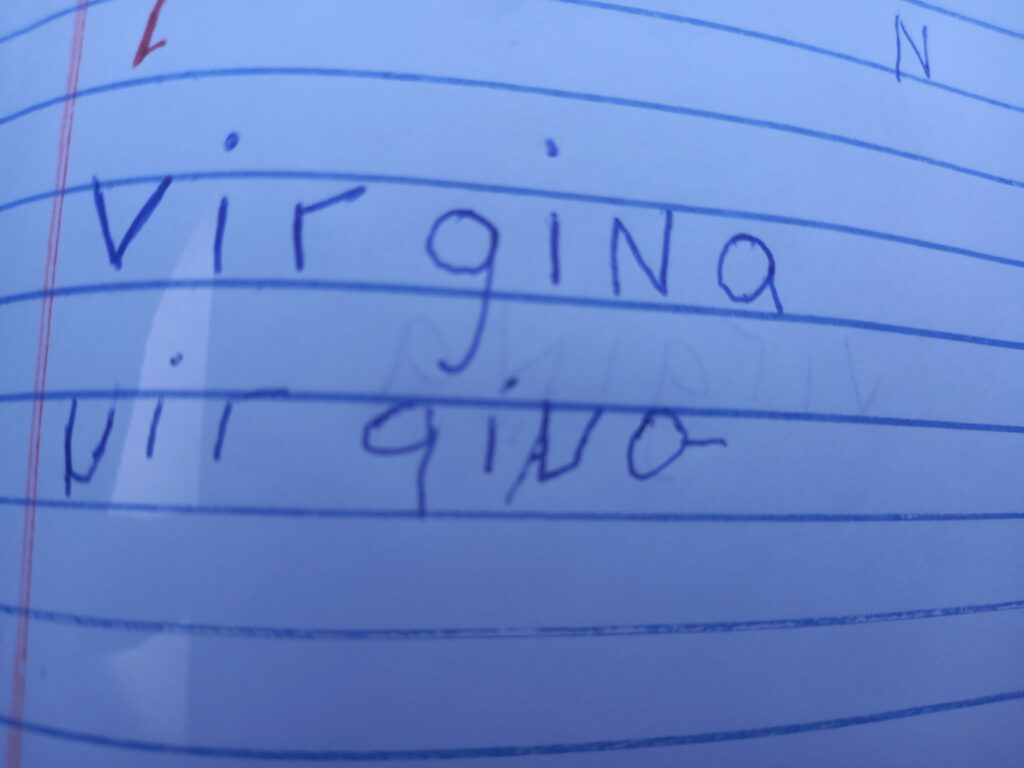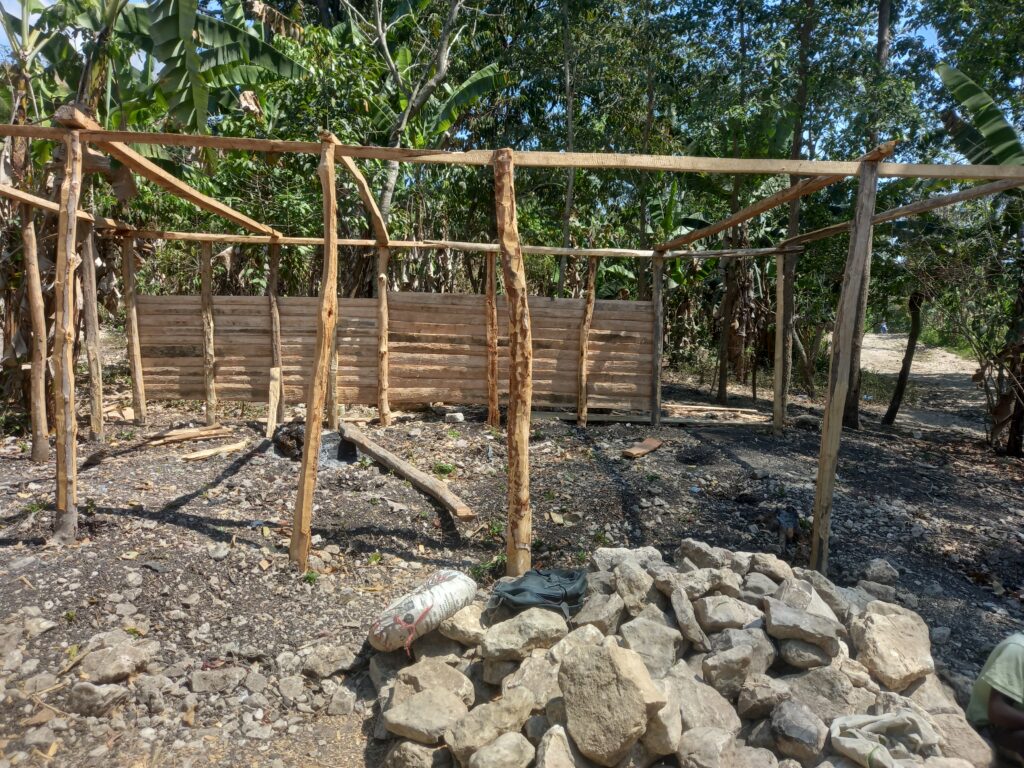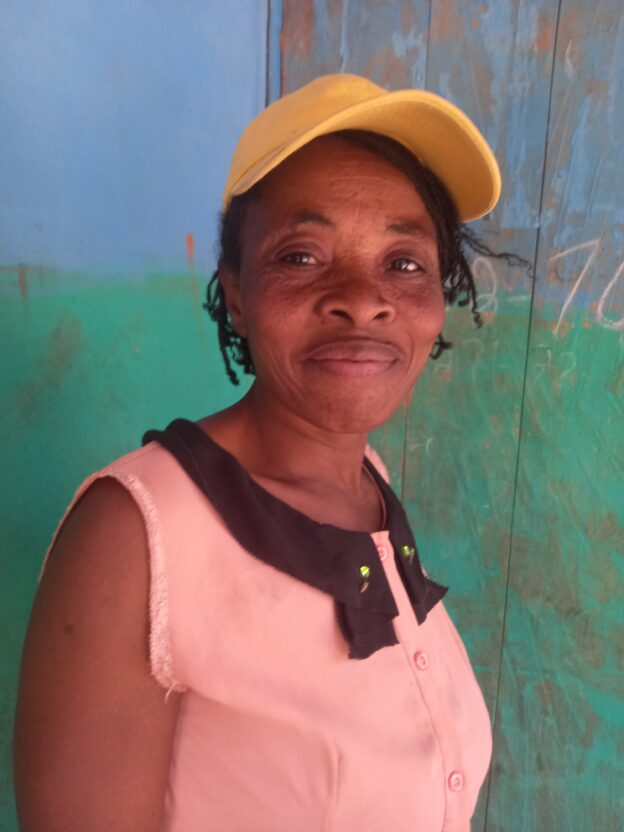Virgina lives in eastern Savanèt, in a community called Woy, between downtown Savanèt and the Dominican border. She, her husband, and their three children live in her parents’ home..
Up until a few years ago, the family was doing fairly well.They made most of their income by farming their own land, but Virgina managed a small commerce as well. The couple saved their money and bought a motorcycle. Renting it to a taxi driver brought in additional weekly income.
But Virgina suddenly became sick. Something happened to her lower back, and she couldn’t really move. Her feet swelled and became useless. Her family thought the condition was something magical, as though a spell of some kind had been cast on her. Instead of taking her to a hospital, which would have been a long, hard trip from Woy in any case, they took her to see practitioners of traditional treatments.
It was expensive. It didn’t help, but it cost the couple everything they had: their land, the motorcycle, and everything in her business. When the CLM team met them last year, the family was often going hungry and the children were no longer in school. Virgina could barely get around the yard with the help of crutches.
Her case manager and his supervisor convinced her to try going to the University Hospital in Mibalè, a government hospital supported by Fonkoze’s long-time partner, Partners in Health. The CLM team provided the transportation she needed in one of the program’s vehicles. She made the first trip in the cab of the small truck it uses to move goats. She has made five trips to Mibalè so far, and she is a different woman. Through medication and physical therapy she is slowly regaining her ability to walk.
She asked the team to provide her with goats and a pig, even though when she first received them she couldn’t get around well enough to take care of them. She had to leave that work to her family. Thieves stole the larger of the two goats she received, but her husband and children have taken good care of the other one, and it now has two kids. The team also bought her a very small sow, and she has since added a second sow herself with savings from her weekly stipend.

When she first started to be able to move around again, she bought some oil and some rice and began to sell from a small table on the road in front of her home. She managed the business carefully. It gave her the income she needed to contributed every week to her savings group and some money to take care of household expenses as well. She is able to feed both her sows, which is remarkable because taking care of them can be as expensive as taking care of kids. She took out a first loan from that savings group of 10,000 gourds — about $65 — when she was ready to expand her business. She began to sell a wider range of products. She repaid that loan on time and took out a second, this one for 15,000.
She realized that she wouldn’t be able to simply buy more groceries or even more types of groceries. She needed a second business. By now she was moving around more comfortably, so she went to market and bought up local corn. She rented a mule, and brought the corn for sale to Miguel, on the Dominican border. Dominican buyers come to buy Haitian products.
That is a good business, but with the change in seasons she plans a change in products. It is almost time for the next bean harvest, and she thinks that if she buys loads of 50-or-so measures of beans for 15,000 gourds she will be able to sell them in Miguel for about 23,000. It is a good profit, and she should be able to make several trips. “I’ll make enough to buy a little water,” she jokes.
In the meantime, the family’s life has changed. They eat everyday, and her children are back in school. The couple is working on building a new home of their own on the plot of land that they moved to when they sold their own.
She does not seem sure just yet what she will do with her growing wealth. Though she hopes eventually to be able to buy land once again.

